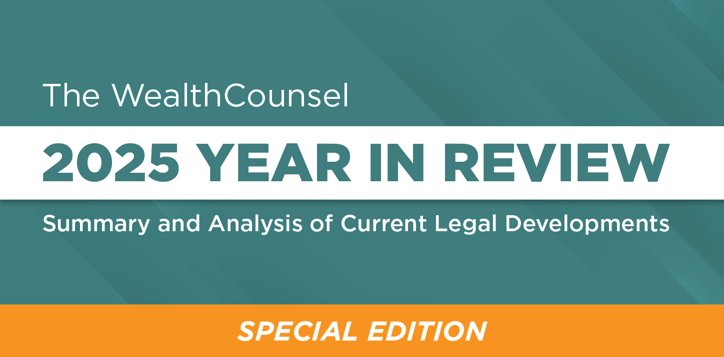.png)
In the past month, we have seen significant developments in estate planning, business law, elder law, and special needs law. We have highlighted the most noteworthy developments to ensure you and your firm stay informed of any changes. From the Internal Revenue Service’s safe harbor provision for the staking of digital assets held in a trust to a ruling denying a private right of action under the Medicaid Act and a decision upholding the constitutionality of the Corporate Transparency Act, read on to learn how these decisions may impact your practice.



